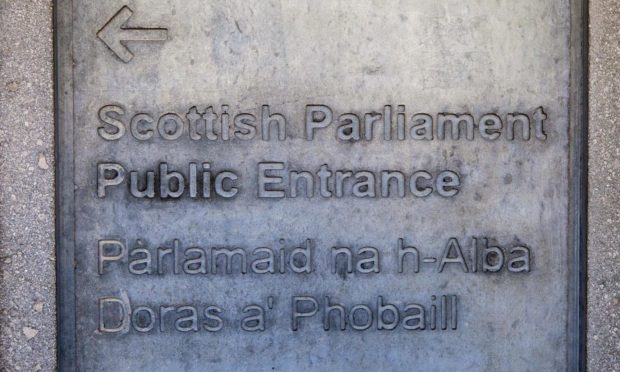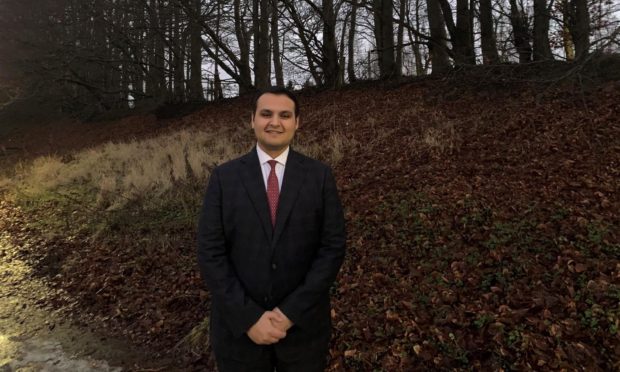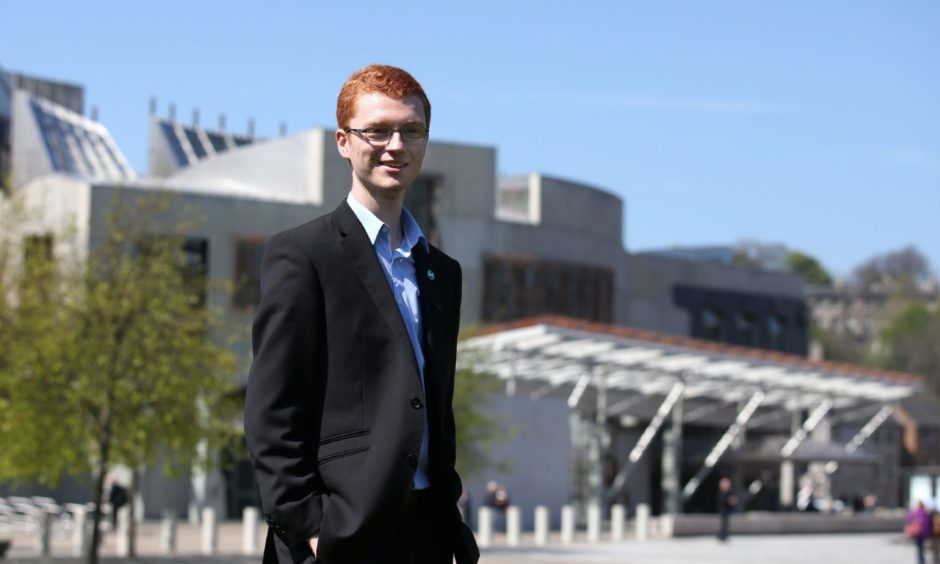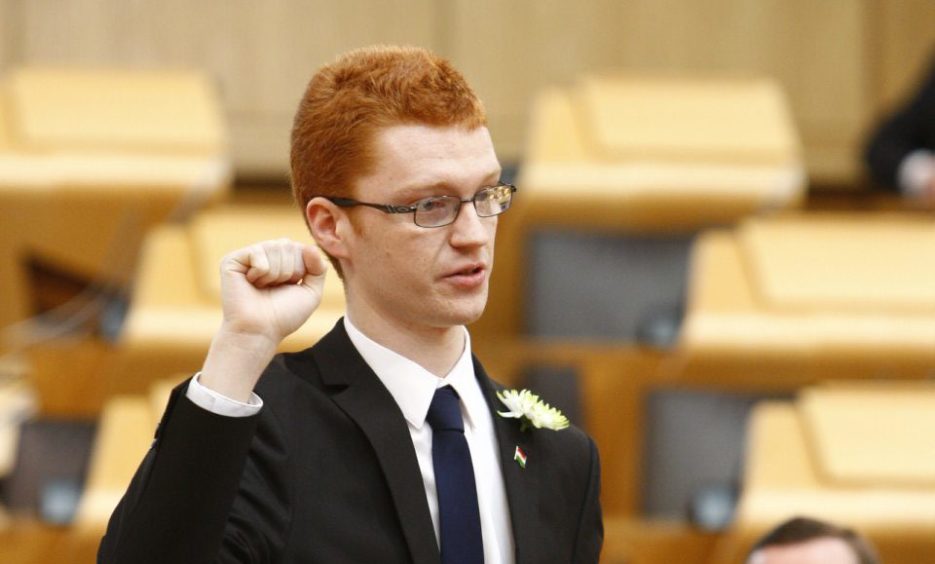It was growing up with a single mum who worked long hours in the NHS that first inspired Kamaal Bola to consider a life in politics.
The 19-year-old, one of 10 shortlisted to represent Scottish Labour in the north-east regional list seat, says he was raised in a single-parent household for most of his childhood.
“I could see how difficult it was for my mum to raise me and that inspired me to get involved in politics and make a difference for single parents and make sure people in public services are properly appreciated,” he says.
He adds: “My mum has always voted Labour as well so I’ve grown up with Labour values.”
The Dundee University law student, who was brought up in Derby before moving to Edinburgh at the age of 16 to do his fifth year at school, is one of this year’s youngest participants in Scottish Labour’s Gordon Aikman Leadership Programme.
Named in memory of a Scottish Labour Party staffer and Motor Neurone Disease campaigner who died in 2017, the training programme supports those ready to be leaders within the party.

Participation in the scheme gave the 19-year-old the “confidence” to put his hat in the ring, with hopes that a “young, fresh cohort of Labour MSPs” will reinvigorate the party.
However, there will be those who believe younger candidates do not have the sufficient life experience or political know-how to be effective elected representatives.
To those people, Kamaal would say you can be “just as competent at 19 as somebody else could be at 50” and says younger people can bring a “fresh perspective on issues”.
He adds: “I don’t see a link between age and competency but I understand that people do.
“Politics in general is always seem as something done by old men in their fifties but I think that dynamic is shifting now with female, BAME representation and LGBTQ+ representation.
“I think bringing youth in allows younger people to look up to people like me and say: ‘that could be me’.”
The Dundee University student is also hoping to become the country’s first Sikh MSP in a parliament that, since 1999, has only had a total of four members from black, Asian and minority ethnic (BAME) communities – all of them men of Scots-Pakistani heritage.
‘Parliament needs to represent the country in general’
He says: “Parliament needs to represent the country in general and having in general older, only white people in the parliament, it doesn’t represent the whole country and can disillusion people from politics.
“If the impression to the general public is that power is out of their reach and it’s far away and you’re looking for a certain type of person then by electing people from different backgrounds, it makes the idea of a political career a little bit more obtainable to people.”
In terms of the issues he wishes to tackle if elected to parliament, Kamaal points to the drugs deaths crisis in Dundee.
“It’s a tragedy, what is happening,” he says.
“There’s been no increase in the budget or no new support mechanism to help reduce the number of drug deaths. There’s no excuse for it.
“We need new ideas on how to tackle the drug crisis because the current approach doesn’t seem to be working.”
Scotland’s youngest-ever MSP
As Scotland’s youngest-ever MSP, Ross Greer of the Scottish Greens knows only too well the realities of navigating a parliament filled with colleagues several decades older.
The 26-year-old, who was elected at the age of 21, has “no interest” in holding the record for the youngest-ever MSP and says it would be “fantastic” to see someone younger enter Holyrood next year.
Looking back at more than four years in parliament now, Greer says he found that there were people who were “very positive” about him being the youngest MSP.
But they were going about it in a way that wasn’t “particularly respectful” and could be “patronising”.
He says: “What they were trying to do was see me and deal with me only as the youngest MSP not as the Green MSP for the West of Scotland.
“Clearly for people who found my politics to be challenging, it was clearly an attempt, sometimes conscious and sometimes unconscious, to de-politicise me.”
Being the youngest MSP did come with advantages such as being given platforms to speak and media attention simply because of his age but this allowed him the chance to promote issues he feels passionate about.
However, he admits he did have “some insecurities” once he was elected to the Scottish Parliament, in that he feared he would need to “work harder to prove himself”.
He says: “What felt to me like it could be an issue was the depth of knowledge about public policy.
“I went into it thinking the overall majority of people I’d be working with would know far more about the issues than I was.
“None of that turned out to be true. Like any new job, you go through a learning curve but I was going through that at the same time as 40 other new members of parliament.
“My policy knowledge was less than some people in some specific areas but it was also larger than other people’s in other specific areas and it really wasn’t related to age.”
‘Silly little boy’
Only once did Greer feel “very directly patronised” by another MSP when he says a Scottish Conservative politician called him a “silly little boy” during a speech the Green politician made to mark World Refugee Day.
“I actually found it quite entertaining because it was very clear that rather than deal with the substance of what I was talking about, to which he frankly had no defence, he resorted to this patronising nonsense,” he recalls.
However, “overwhelmingly” MSPs from other parties have treated him “like anyone else”.
In terms of the world outside the Holyrood chamber, the 26-year-old says due to the “high-ish profile” he has, he receives abuse from internet trolls who bring up his age.
However, he adds this is not “remotely comparable” to the misogyny faced online by female politicians or the racist abuse MSPs Humza Yousaf and Anas Sarwar receive.
‘Scotland should look like the society it represents’
The Scottish Green MSP says parliament should “look the society it represents” and that includes younger people.
He points to examples where there are “massive generational differences” in experiences, including the housing market and the employment sector where his generation has a “completely different experience” compared to those who came before.
The climate also provides a clear example where young people have been the “driving force”.
He says: “Not only are you bringing in that direct lived experience but you’re also bringing in different philosophies on how we should tackle these kind of issues.”
The MSP points to a Scottish Parliament debate on safety online for young people where he recalls that, as the youngest MSP in the room, he was the only person with direct experience of using social media from the age under discussion.
Another example where Greer believes his youth played a directly positive role was his work in 2016 to get the education committee to rework the personal and social education curriculum, which covers issues including sex, relationships, mental health and drugs and alcohol in schools.
He said: “I knew it was not working, was widely disrespected and not seen as a worthwhile part of school but actually the stuff you should be learning there is incredibly important.
“If you want to tackle things such as rape culture then you really need to look at the fact that most young people don’t actually learn about consent when they learn about sex and relationships.”
Covid-19 pandemic
Young people will become politicised as a result of the Covid-19 pandemic, Greer says. He adds: “That generation has experienced the shambles in how governments across the UK have dealt with education in the pandemic.
“In Scotland that has been the shambles of the 2020 SQA results, despite the fact that some of us had been warning for five months that was going to happen and we were ignored.
We are clearly in an area where the status quo does need upset, where it can’t hold any longer and we do need big, transformational change.”
Ross Greer MSP
“You’ve got a generation of young people who, even before the pandemic, were not exactly optimistic about the world of employment that they were going to be going into and issues like housing and are now seeing this profound economic crisis but they’re not seeing an attempt to build back from that in a way that rectifies all those problems that came before.
“Young people are motivated not just by the fact that their generation has a different experience, though that’s important, but also by wanting to transform the world for the better for everyone.
“There are just some people who feel downright threatened by the fact young people are not just saying things that are bold and different and upset the staus quo but I know they get really insecure when young people end up in positions of power where they can actually change things.
“We are clearly in an area where the status quo does need upset, where it can’t hold any longer and we do need big, transformational change.”


